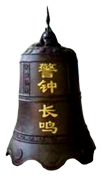|

南开校友及各界朋友信息交流网站
|
|
常耀信
常耀信,河北沧州人。 毕业后留校,同时被公派去英国留学,大约一年后因“文革”中断学习,回国。"文革”期间曾参加中国援助阿富汗和巴基斯坦工程队,任翻译。文革后赴美国Temple University留学,获美国文学博士学位。回国后任外文系教授,副系主任,系主任,博士生导师。任关岛大学英文系终身教授,同时兼任南开大学外国语学院博导。
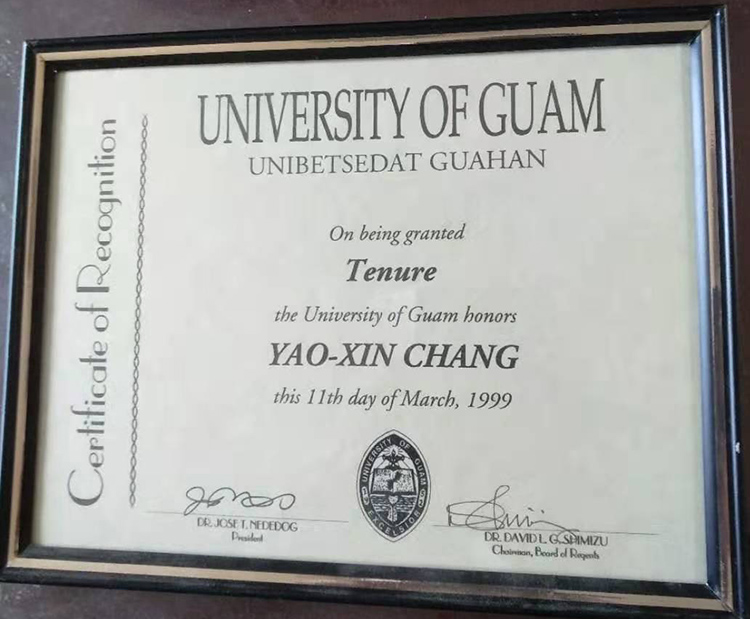
【附】 耀信2011年7月一日的来信:
东山:
谢谢你的来信。
我们国家的事情离不开共产党,换言之,共产党是保障。不少共产党人的贪污腐化引起人民的不满,但生活大大提高了,人民的批评绝大多数没有恶意,这都是事实。在国内说什么都行,但少数法轮功民运分子在国外骂共产党我认为是很不对的。我们的网站坚持正义,维护国家荣誉,值得称赞。有何吩咐,尽管告我,我会尽力的。
祝福你们全家生活愉快,身体健康。
耀信
  
 近照
近照
|
 1965
1965 |
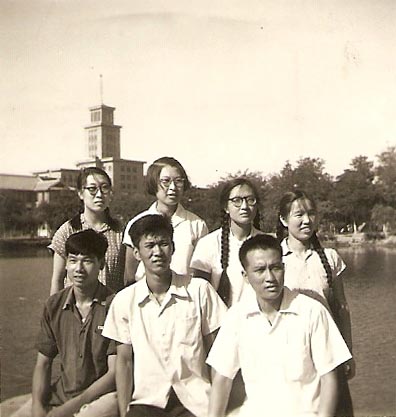
毕业照前排左起第二人为常耀信,1965
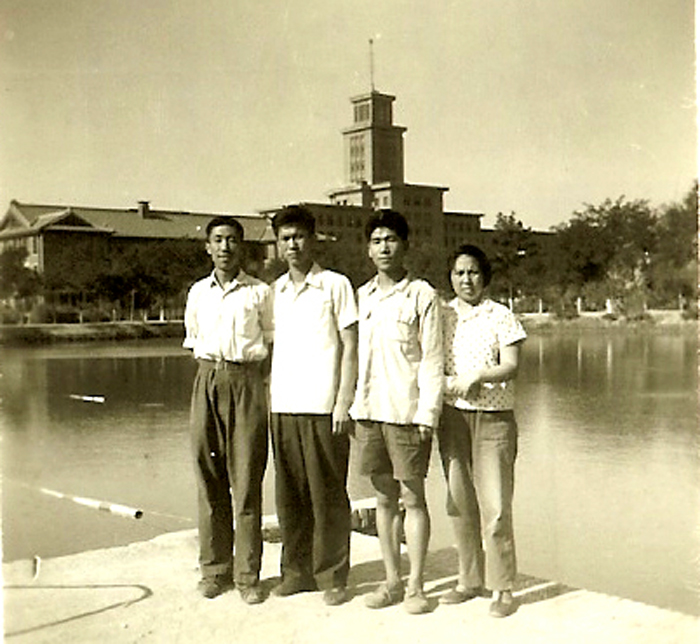
毕业合影左起李维树、常耀信、高东山、鲁琪于新开湖畔 , July 1965
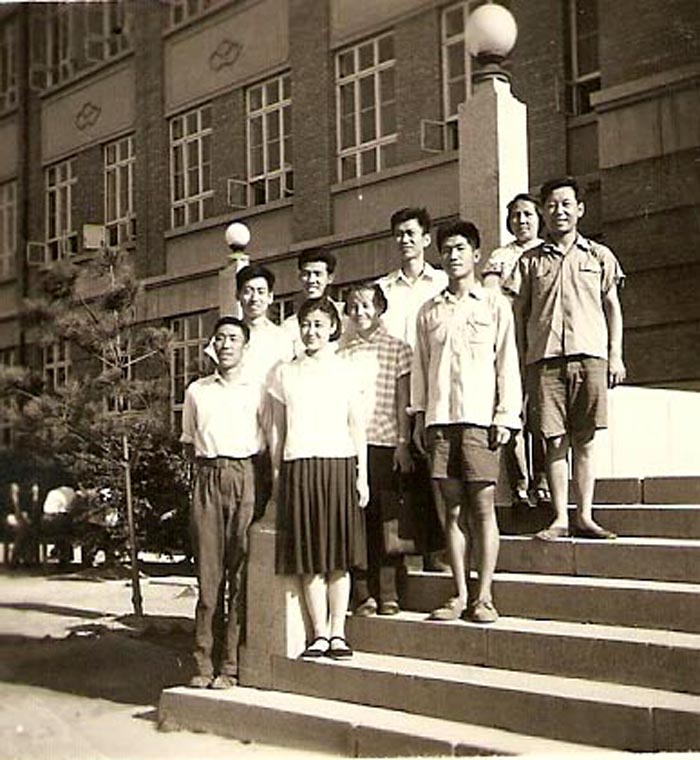
毕业合影前起李维树、吴清心、叶东炜、吕玉池、高东山、李清和、常耀信、赵宏博、鲁琪于图书馆前, July 1965
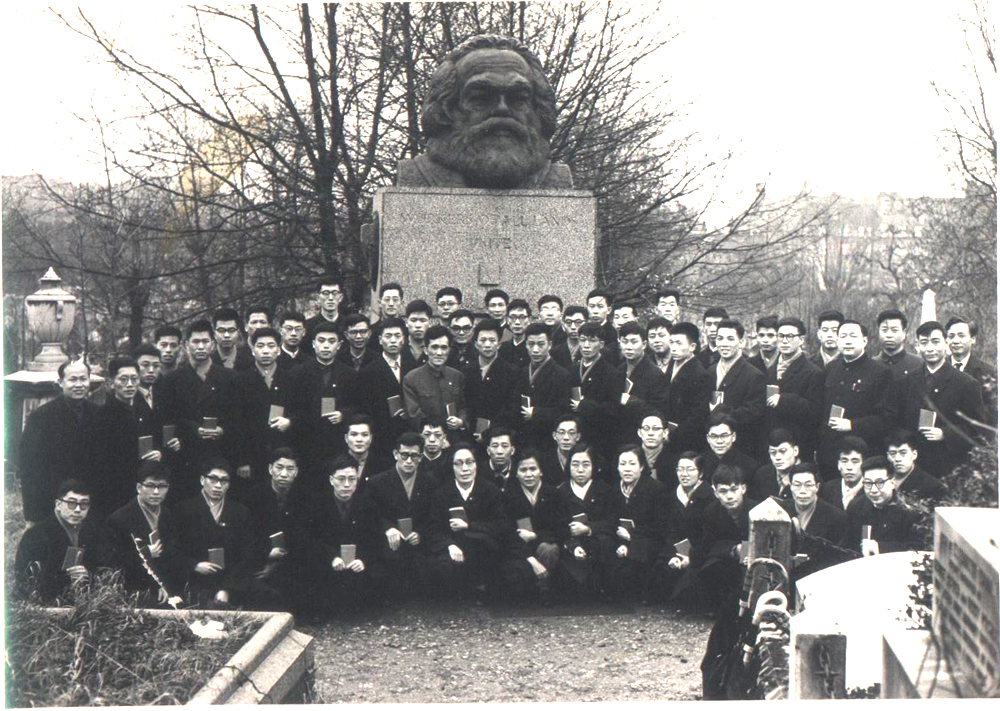
在英国伦敦海德公园内马克思墓前合影留念, 1965年12月。 二排右起第一人是崔庆平校友,二排站立者左起第四人是校友常耀信(外文系65届);二排(蹲着的)左一原驻丹麦、葡萄牙大使王其良,左二原驻英国大使马振岗,马大使身后站立者为杭雄文二等秘书
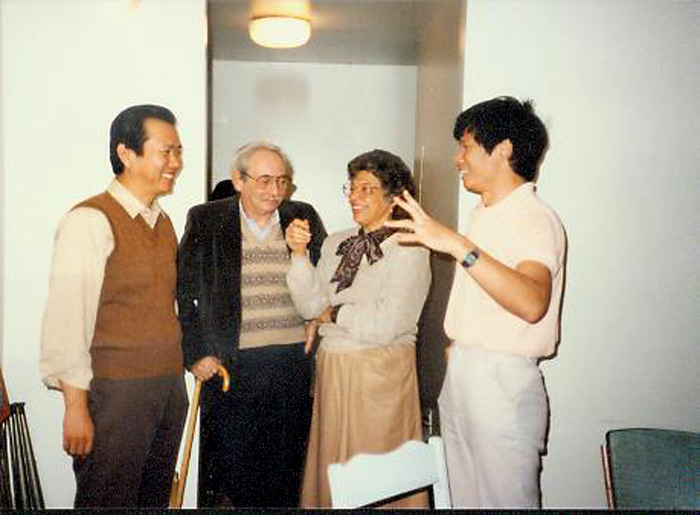
常耀信、梁一雄在Temple University,1980s

左起张连泰、常耀信、刘秀请、李广然、朱文俊、蔡文美、王陞印

左起朱柏桐、王蕴茹、许荣仙、常耀信
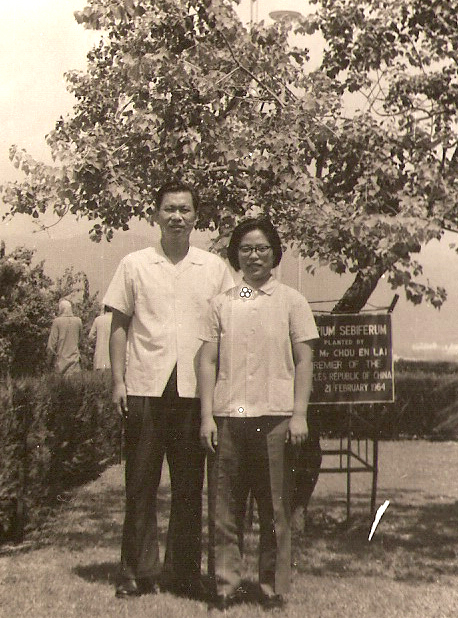
耀信与夫人王蕴茹在巴基斯坦首都, 70年代中期在周总理所植友谊树前

70年代中在阿富汗首都郊区
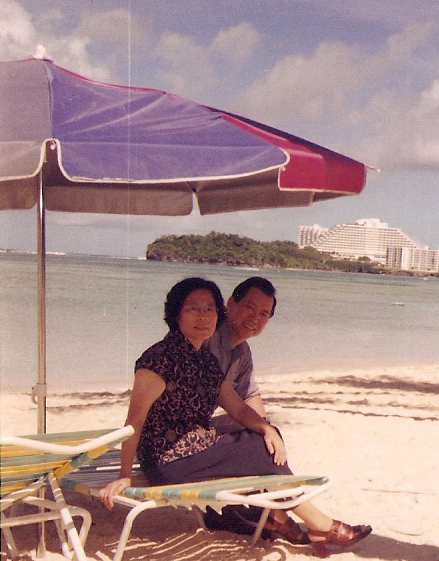
关岛, 太平洋海滨
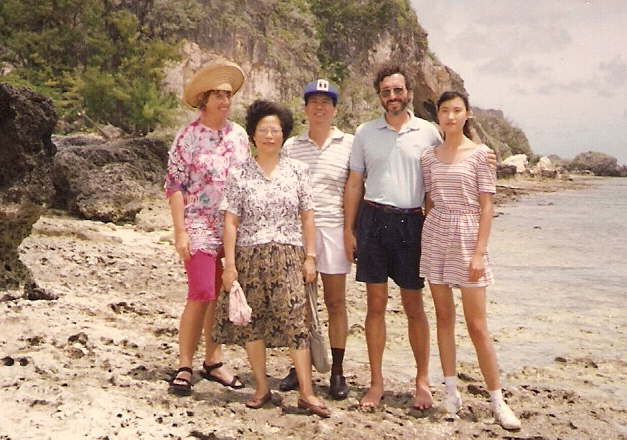
1995年在太平洋海滨
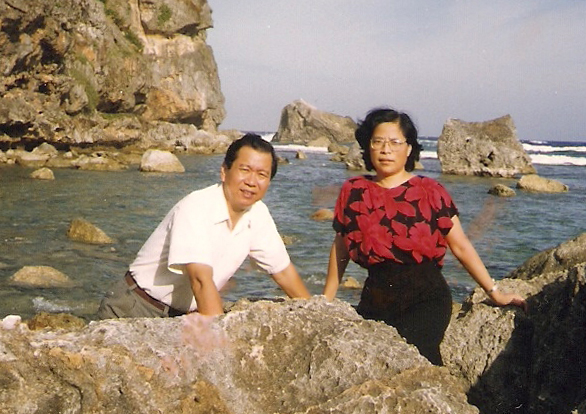
1995年在太平洋海滨
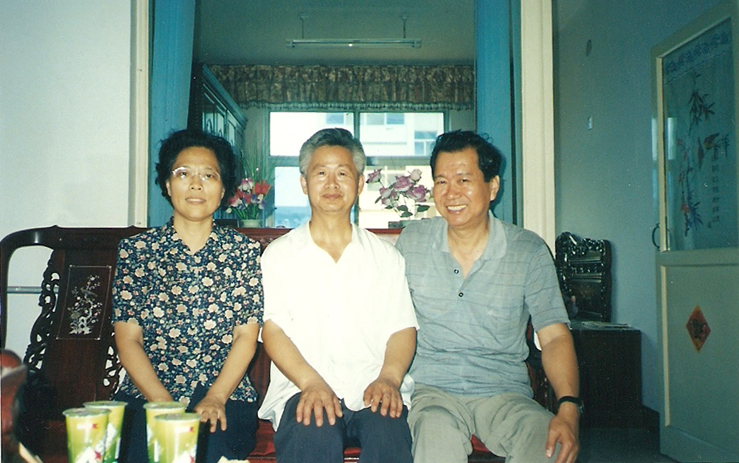
王蕴茹杨俊起常耀信,2001年7月8日于杨俊起家
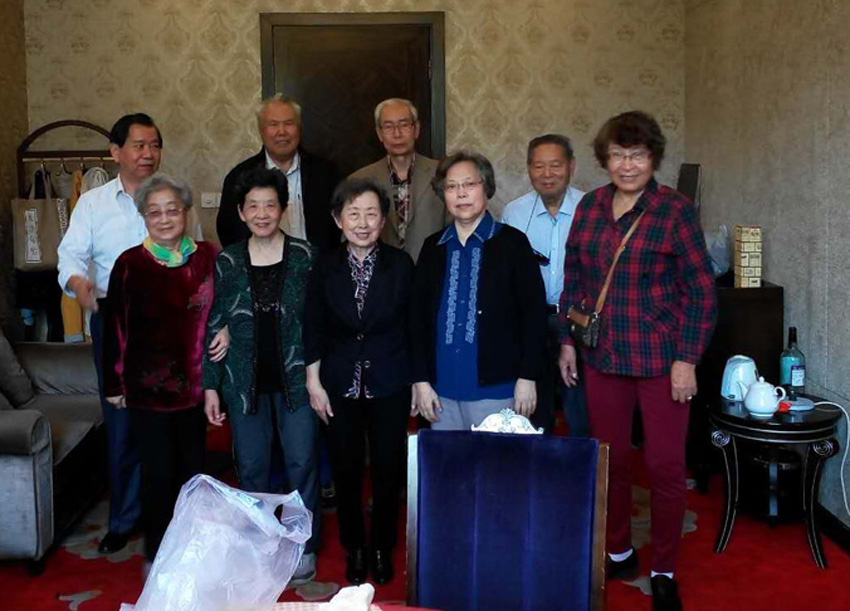
前排左起朱柏桐、谷启楠、马振铃老师、王蕴茹、孙毅兵; 后排左起常耀信、崔永禄、刘士聪、吴则田
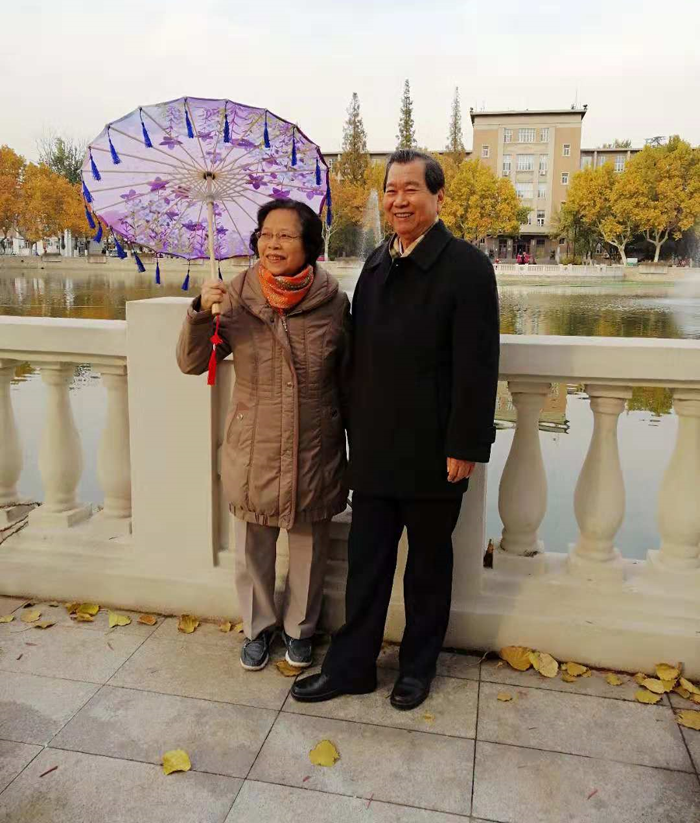
王蕴茹常耀信夫妇
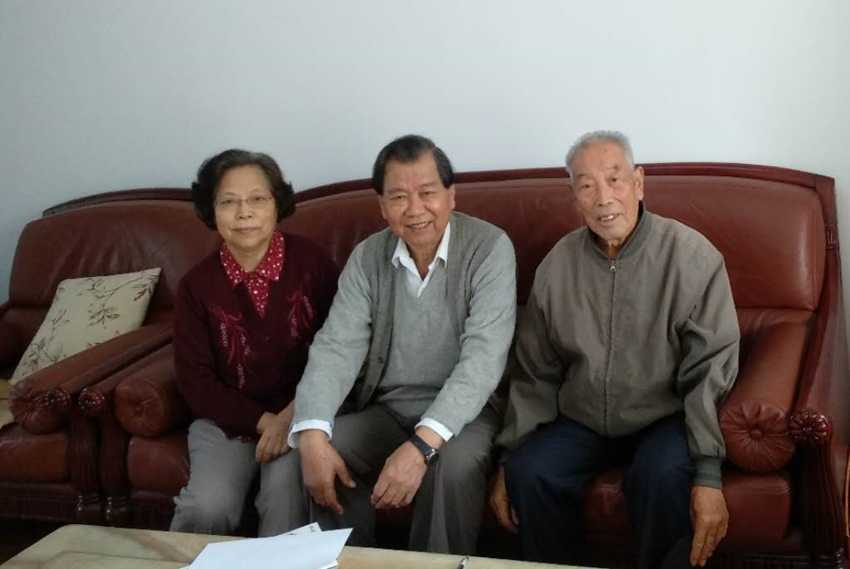
右起胡中林、常耀信、王蕴茹

右起谷启楠、王蕴茹

左起马红旗、蒋华上、刘士聪、常耀信、费念华、王蕴茹、谷启楠, 10/18/2019

1965届师生合影 10月16日 2019年 。前排左起孫毅兵、祝寶銀、朱柏桐、馬振玲、王蘊茹、谷啟楠、;後排左起崔永祿、徐基榮、吳則田、朱文俊、潘子立、高東山、劉士聰
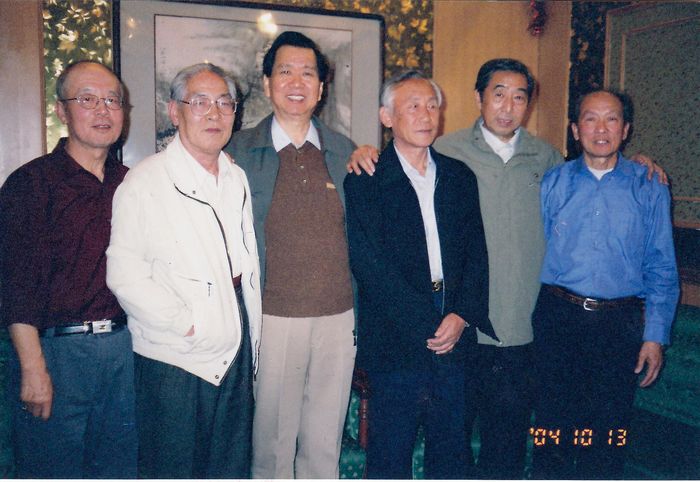
左起李廣然、劉煥群、常耀信、趙興、宮自強、徐基榮

左起王蕴茹、胡小平、杨桂林、常耀信、周轩进、高东山、郑之锦
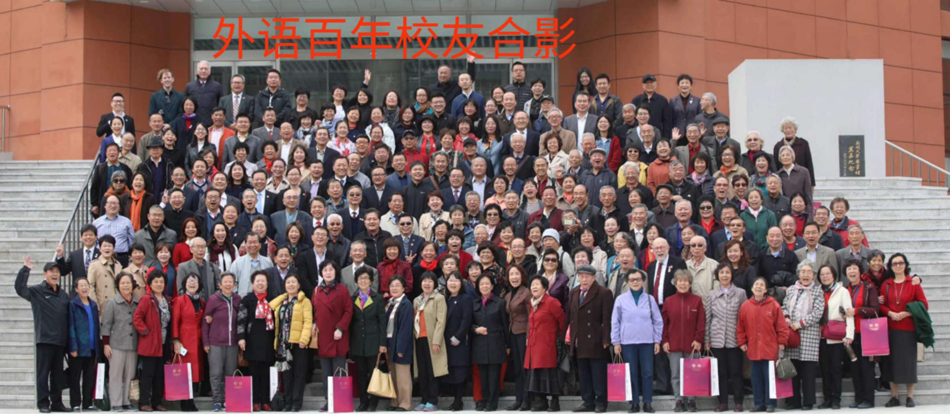
二排左5常耀信
|
文章&报道:
 我的父亲—纪念父亲逝世三十五周年 我的父亲—纪念父亲逝世三十五周年
 往事钩沉忆恩师 -- 忆李霁野先生 往事钩沉忆恩师 -- 忆李霁野先生
 往事钩沉忆恩师 -- 忆李宜燮教授 往事钩沉忆恩师 -- 忆李宜燮教授
 往事钩沉忆恩师--忆张秉礼教授 往事钩沉忆恩师--忆张秉礼教授
 “中国人是不好惹的” “中国人是不好惹的”
 相遇大师常耀信 相遇大师常耀信
 常耀信妙语解读后现代主义 常耀信妙语解读后现代主义
著作
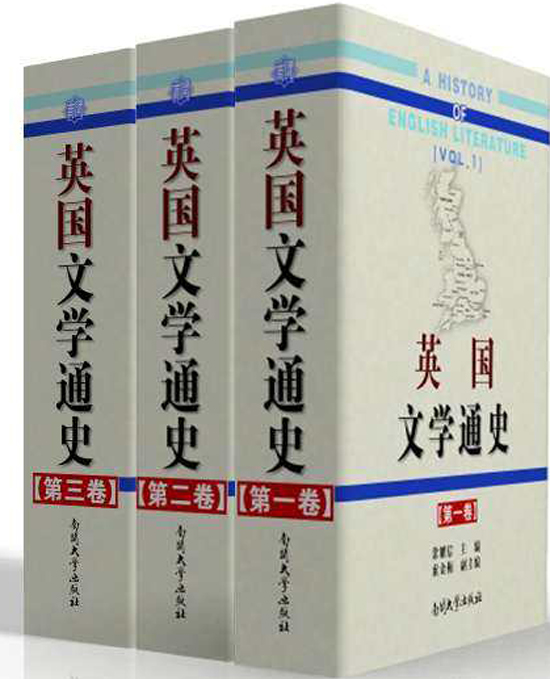 《英国文学通史(全三卷)》 《英国文学通史(全三卷)》
书号:ISBN 978-7-310-04159-6
作者:常耀信 主编
开本:国际32开(精装+护封)
页码:2632页
定价:380.00元
出版时间:2013年4月第一版, 2019年5月第3次印刷
内容简介:本书由南开大学外国语学院英美文学教授常耀信先生主编,全书共分3卷,梳理和介绍英国文学发展历程、评述和赏析其代表性作家作品,包括时代背景、文化环境、作家生平及创作、作品梗概与艺术风格、后世影响等;各卷所涉作家、作品的时间跨度如下:
第1卷: 自公元初年至18世纪后期;
第2卷: 包括浪漫主义时期和维多利亚时期;
第3卷: 从20世纪初年迄今。
【简介】作为一部学术专著,系统、全面、深入地挖掘、探索、研究、分析英国文学史料,力求钩深致远,总结文学创作的规律性因素,展示多年来国内外学者的前沿性研究成果,是英国文学研究方面一本举足轻重的学术资源性书籍。
《美国文学选读》 (上下册;主编之一)
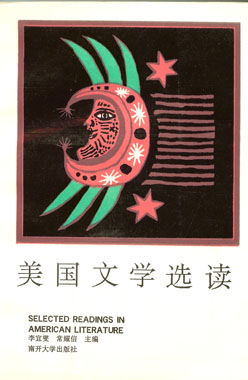
·出版社:南开大学出版社
·页码:854 页
·出版日期:1987年
·ISBN:7310003969
|
《美国文学简史》
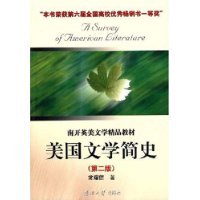
·出版社:南开大学出版社
·页码:654 页
·出版日期:2008年
·ISBN:9787310002900
|
《英国文学简史》
(普通高等教育十一五国家级规划教材)
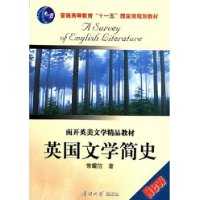
·出版社:南开大学出版社
·页码:587 页
·出版日期:2008年
·ISBN:7310023986
|
《漫话英美文学》-英美文学史考研指南
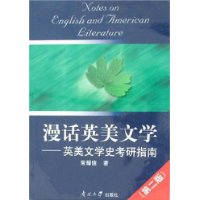
·出版社:南开大学出版社
·页码:362 页
·出版日期:2006年
·ISBN:7310020715 |
《精编美国文学教程》(中文版)
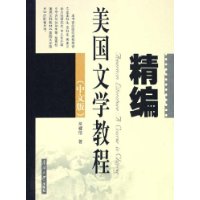
·出版社:南开大学出版社
·页码:465 页
·出版日期:2005年
·ISBN:731002169X |
《美国文学批评名著精读》(上下)
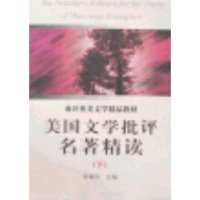
·出版社:南开大学出版社
·页码:798 页
·出版日期:2007年
·ISBN:7310026748 |
《英国文学大花园》
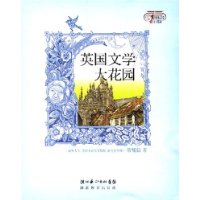
·出版社:湖北长江出版集团,湖北教育出版社
·页码:262 页
·出版日期:2007年
·ISBN:9787535147257 |
常耀信专著《美国文学史》荣膺全国60年60本最具影响力外语出版物! 该书自1990年第一版问世以来,便被教育部确定为高校文科教材及美国文学研究的重要参考书,在国内各大高校及英语研究领域广泛使用,且畅销不衰!
|
 附卓越亚马逊网常耀信简介:教授,博士生导师,任教于中国南开大学及美国关岛大学.研究方向为英美文学。著有《希腊罗马神话》、《漫话英美文学》、《美国文学简史》(英文版)、《美国文学史(上)》(中文版);主编有:《英国文学通史(全三卷)》、
《美国文学选读》(上、下)、《美国文学研究评论选》(上、下)及《自选评论文集--文化与文学中的比较研究》等。
此外,还在国内外刊物上发表过多篇论文,阐述中国文化对美国文学的影响。1988年被选人英国国际传记中心编纂的《远东及太平洋名人录》,后亦被选入《美国名师录》。 附卓越亚马逊网常耀信简介:教授,博士生导师,任教于中国南开大学及美国关岛大学.研究方向为英美文学。著有《希腊罗马神话》、《漫话英美文学》、《美国文学简史》(英文版)、《美国文学史(上)》(中文版);主编有:《英国文学通史(全三卷)》、
《美国文学选读》(上、下)、《美国文学研究评论选》(上、下)及《自选评论文集--文化与文学中的比较研究》等。
此外,还在国内外刊物上发表过多篇论文,阐述中国文化对美国文学的影响。1988年被选人英国国际传记中心编纂的《远东及太平洋名人录》,后亦被选入《美国名师录》。
 
|
English Poet Robert Browning (1812-1889) |
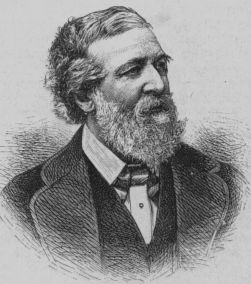
Robert Browning
(This work of art is in public domain.)
Robert Browning (7 May 1812 – 12 December 1889) was an English poet and playwright whose mastery of dramatic verse, especially dramatic monologues, made him one of the foremost Victorian poets. Browning’s fame today rests mainly on his dramatic monologues, in which the words not only convey setting and action but also reveal the speaker’s character. Unlike a soliloquy, the meaning in a Browning dramatic monologue is not what the speaker directly reveals but what he inadvertently "gives away" about himself in the process of rationalizing past actions, or "special-pleading" his case to a silent auditor in the poem. Rather than thinking out loud, the character composes a self-defense which the reader, as "juror," is challenged to see through. Browning chooses some of the most debased, extreme and even criminally psychotic characters, no doubt for the challenge of building a sympathetic case for a character who doesn't deserve one and to cause the reader to squirm at the temptation to acquit a character who may be a homicidal psychopath. One of his more sensational dramatic monologues is Porphyria's Lover. The opening lines provide a sinister setting for the macabre events that follow. It is plain that the speaker is insane, as he strangles his lover with her own hair to try and preserve for ever the moment of perfect love she has shown him.
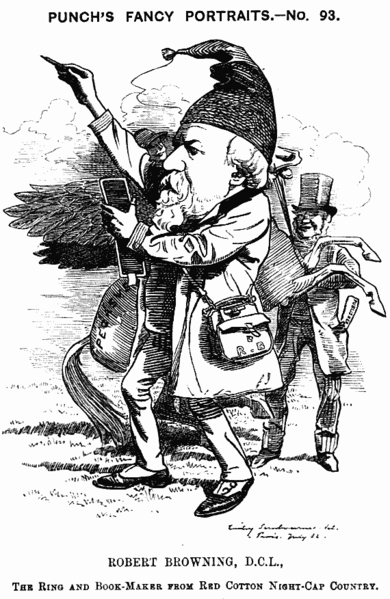
1882 Caricature from Punch. (This work of art is in public domain.)
Yet it is by carefully reading the far more sophisticated and cultivated rhetoric of the aristocratic and civilized Duke of My Last Duchess, perhaps the most frequently cited example of the poet's dramatic monologue form, that the attentive reader discovers the most horrific example of a mind totally mad despite its eloquence in expressing itself. The duchess, we learn, was murdered not because of infidelity, not because of a lack of gratitude for her position, and not, finally, because of the simple pleasures she took in common everyday occurrences. She is reduced to an object d'art in the Duke's collection of paintings and statues because the Duke equates his instructing her to behave like a duchess with "stooping," an action of which his megalomaniacal pride is incapable. In other monologues, such as Fra Lippo Lippi, Browning takes an ostensibly unsavory or immoral character and challenges us to discover the goodness, or life-affirming qualities, that often put the speaker's contemporaneous judges to shame. In The Ring and the Book Browning writes an epic-length poem in which he justifies the ways of God to humanity through twelve extended blank verse monologues spoken by the principals in a trial about a murder. These monologues greatly influenced many later poets, including T. S. Eliot and Ezra Pound, the latter singling out in his Cantos Browning's convoluted psychological poem about a frustrated 13-century troubadour, Sordello, as the poem he must work to distance himself from.
Ironically, Browning’s style, which seemed modern and experimental to Victorian readers, owes much to his love of the seventeenth century poems of John Donne with their abrupt openings, colloquial phrasing and irregular rhythms. But he remains too much the prophet-poet and descendant of Percy Shelley to settle for the conceits, puns, and verbal play of the Metaphysical poets of the seventeenth century. His is a modern sensibility, all too aware of the arguments against the vulnerable position of one of his simple characters, who recites: "God's in His Heaven; All's right with the world." Browning endorses such a position because he sees an immanent deity that, far from remaining in a transcendent heaven, is indivisible from temporal process, assuring that in the fullness of theological time there is ample cause for celebrating life. Browning's is assuredly at once the most incarnate and dynamic of visions of Deity, in
Christianity and perhaps in any of the world's great religions.
  
Home Thoughts, From Abroad
by Robert Browning
|
|
|
| |
Oh, to be in England
Now that April's there,
And whoever wakes in England
Sees, some morning, unaware,
That the lowest boughs and the brushwood sheaf
Round the elm-tree bole are in tiny leaf,
While the chaffinch sings on the orchard bough
In England—now!
And after April, when May follows,
And the whitethroat builds, and all the swallows!
Hark, where my blossomed pear-tree in the hedge
Leans to the field and scatters on the clover
Blossoms and dewdrops—at the bent spray's edge—
That's the wise thrush; he sings each song twice over,
Lest you should think he never could recapture
The first fine careless rapture!
And though the fields look rough with hoary dew,
All will be gay when noontide wakes anew
The buttercups, the little children's dower
—Far brighter than this gaudy melon-flower!
|
|
Home Thoughts, from the Sea
by Robert Browning
|
|
|
| |
Nobly, nobly Cape Saint Vincent to the North-west died away;
Sunset ran, one glorious blood-red, reeking into Cadiz Bay;
Bluish 'mid the burning water, full in face Trafalgar lay;
In the dimmest North-east distance dawned Gibraltar grand and grey;
"Here and here did England help me: how can I help England?" -say,
Whoso turns as I, this evening, turn to God to praise and pray,
While Jove's planet rises yonder, silent over Africa.
|
|
|
| |
FERRARA
That's my last Duchess painted on the wall,
Looking as if she were alive. I call
That piece a wonder, now: Fra Pandolf's hands
Worked busily a day, and there she stands.
Will't please you sit and look at her? I said
``Fra Pandolf'' by design, for never read
Strangers like you that pictured countenance,
The depth and passion of its earnest glance,
But to myself they turned (since none puts by
The curtain I have drawn for you, but I)
And seemed as they would ask me, if they durst,
How such a glance came there; so, not the first
Are you to turn and ask thus. Sir, 'twas not
Her husband's presence only, called that spot
Of joy into the Duchess' cheek: perhaps
Fra Pandolf chanced to say ``Her mantle laps
``Over my lady's wrist too much,'' or ``Paint
``Must never hope to reproduce the faint
``Half-flush that dies along her throat:'' such stuff
Was courtesy, she thought, and cause enough
For calling up that spot of joy. She had
A heart---how shall I say?---too soon made glad,
Too easily impressed; she liked whate'er
She looked on, and her looks went everywhere.
Sir, 'twas all one! My favour at her breast,
The dropping of the daylight in the West,
The bough of cherries some officious fool
Broke in the orchard for her, the white mule
She rode with round the terrace---all and each
Would draw from her alike the approving speech,
Or blush, at least. She thanked men,---good! but thanked
Somehow---I know not how---as if she ranked
My gift of a nine-hundred-years-old name
With anybody's gift. Who'd stoop to blame
This sort of trifling? Even had you skill
In speech---(which I have not)---to make your will
Quite clear to such an one, and say, ``Just this
``Or that in you disgusts me; here you miss,
``Or there exceed the mark''---and if she let
Herself be lessoned so, nor plainly set
Her wits to yours, forsooth, and made excuse,
---E'en then would be some stooping; and I choose
Never to stoop. Oh sir, she smiled, no doubt,
Whene'er I passed her; but who passed without
Much the same smile? This grew; I gave commands;
Then all smiles stopped together. There she stands
As if alive. Will't please you rise? We'll meet
The company below, then. I repeat,
The Count your master's known munificence
Is ample warrant that no just pretence
Of mine for dowry will be disallowed;
Though his fair daughter's self, as I avowed
At starting, is my object. Nay, we'll go
Together down, sir. Notice Neptune, though,
Taming a sea-horse, thought a rarity,
Which Claus of Innsbruck cast in bronze for me!
** The poem is based on incidens in the life of Alfonso II, Duke of Ferrara in Italy, whose first wife, Lucrezia, a young girl, died in 1561, after three years of marriage. Following her death, the Duke negotiated through an agent to marry a niece of the Count of Tyrol. Browning represents the Duke as addressing this agent.
**********************************
|
|
Memorabilia
by Robert Browning
|
|
|
| |
I.
Ah, did you once see Shelley plain,
And did he stop and speak to you
And did you speak to him again?
How strange it seems and new!
II.
But you were living before that,
And also you are living after;
And the memory I started at---
My starting moves your laughter.
III.
I crossed a moor, with a name of its own
And a certain use in the world no doubt,
Yet a hand's-breadth of it shines alone
'Mid the blank miles round about:
IV.
For there I picked up on the heather
And there I put inside my breast
A moulted feather, an eagle-feather!
Well, I forget the rest.
|
|
My Star
By Robert Browning
|
|
|
| |
All, that I know
Of a certain star
Is, it can throw
(Like the angled spar)
Now a dart of red,
Now a dart of blue
Till my friends have said
They would fain see, too,
My star that dartles the red and the blue!
Then it stops like a bird; like a flower, hangs furled:
They must solace themselves with the Saturn above it.
What matter to me if their star is a world?
Mine has opened its soul to me; therefore I love it.
|
|
Women And Roses
by Robert Browning
|
|
|
| |
I.
I dream of a red-rose tree.
And which of its roses three
Is the dearest rose to me?
II.
Round and round, like a dance of snow
In a dazzling drift, as its guardians, go
Floating the women faded for ages,
Sculptured in stone, on the poet's pages.
Then follow women fresh and gay,
Living and loving and loved to-day.
Last, in the rear, flee the multitude of maidens,
Beauties yet unborn. And all, to one cadence,
They circle their rose on my rose tree.
III.
Dear rose, thy term is reached,
Thy leaf hangs loose and bleached:
Bees pass it unimpeached.
IV.
Stay then, stoop, since I cannot climb,
You, great shapes of the antique time!
How shall I fix you, fire you, freeze you,
Break my heart at your feet to please you?
Oh, to possess and be possessed!
Hearts that beat 'neath each pallid breast!
Once but of love, the poesy, the passion,
Drink but once and die!---In vain, the same fashion,
They circle their rose on my rose tree.
V.
Dear rose, thy joy's undimmed,
Thy cup is ruby-rimmed,
Thy cup's heart nectar-brimmed.
VI.
Deep, as drops from a statue's plinth
The bee sucked in by the hyacinth,
So will I bury me while burning,
Quench like him at a plunge my yearning,
Eyes in your eyes, lips on your lips!
Fold me fast where the cincture slips,
Prison all my soul in eternities of pleasure,
Girdle me for once! But no---the old measure,
They circle their rose on my rose tree.
VII.
Dear rose without a thorn,
Thy bud's the babe unborn:
First streak of a new morn.
VIII.
Wings, lend wings for the cold, the clear!
What is far conquers what is near.
Roses will bloom nor want beholders,
Sprung from the dust where our flesh moulders.
What shall arrive with the cycle's change?
A novel grace and a beauty strange.
I will make an Eve, be the artist that began her,
Shaped her to his mind!---Alas! in like manner
They circle their rose on my rose tree.
|
|
Night and Morning
by Robert Browning
|
|
|
| |
I.
The grey sea and the long black land;
And the yellow half-moon large and low;
And the startled little waves that leap
In fiery ringlets from their sleep,
As I gain the cove with pushing prow,
And quench its speed i' the slushy sand.
II.
Then a mile of warm sea-scented beach;
Three fields to cross till a farm appears;
A tap at the pane, the quick sharp scratch
And blue spurt of a lighted match,
And a voice less loud, thro' its joys and fears,
Than the two hearts beating each to each!
|
Round the cape of a sudden came the sea,
And the sun looked over the mountain's rim:
And straight was a path of gold for him,
And the need of a world of men for me.
|
|
|
|
 
|
   
|
